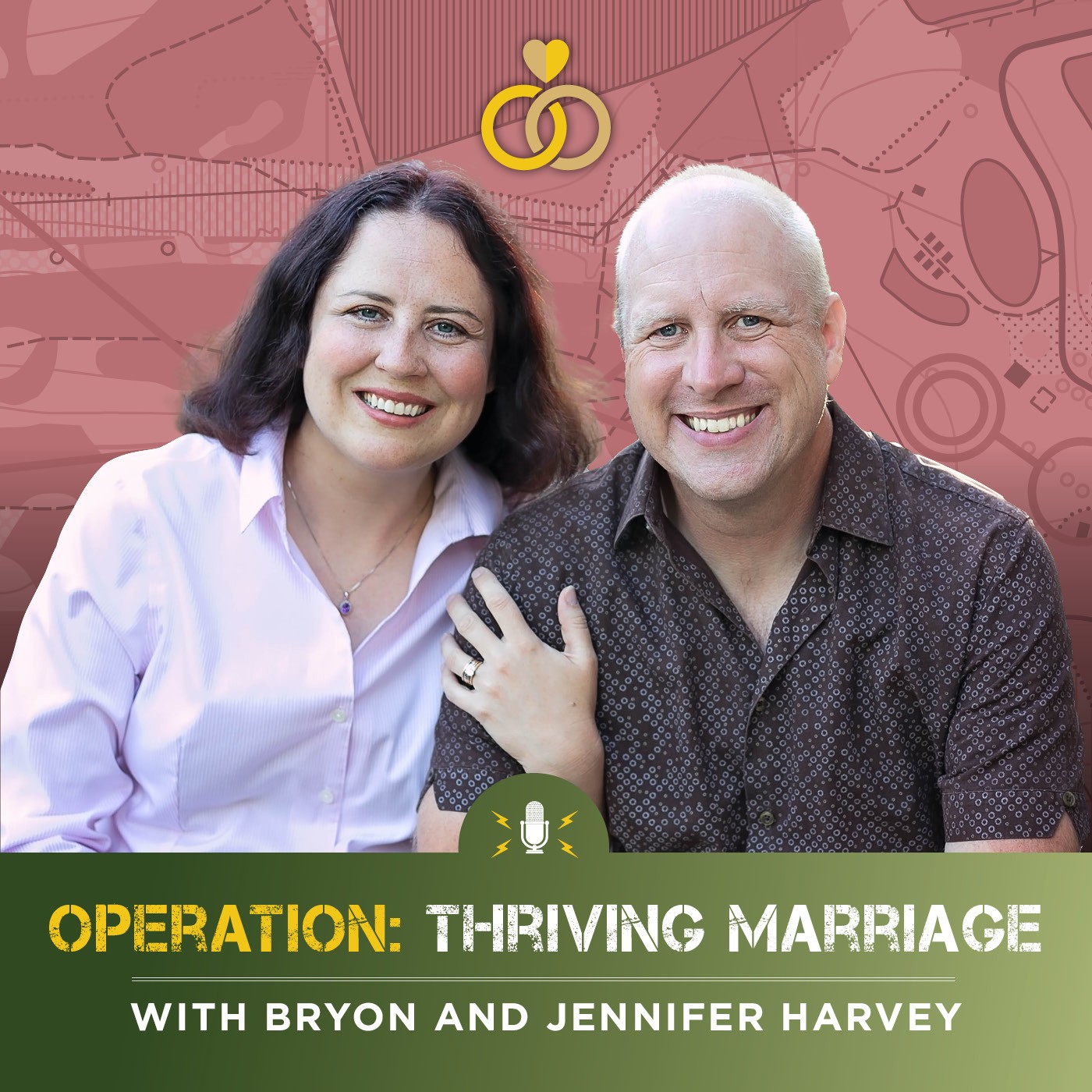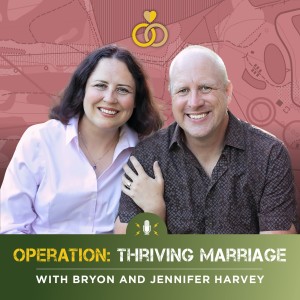
4K
Downloads
86
Episodes
It‘s not enough to have your marriage survive. We want your marriage to thrive! Bringing unique perspectives from counseling individuals and couples in the church, the law, and the military, Bryon and Jennifer Harvey bring a wealth of experience and perspective to Operation: Thriving Marriage.
Episodes

Monday Mar 31, 2025
Ep 81 - How to Sabotage Communication (Part 2)
Monday Mar 31, 2025
Monday Mar 31, 2025
In this episode of Operation: Thriving Marriage, we’re continuing our conversation on how couples sabotage communication in marriage. Last time, we talked about harboring resentment and bottling up emotions — if you haven’t listened to that episode yet, we encourage you to go back and check it out. Today, we’re diving into three more common ways communication breaks down between spouses: allowing arguments to grow, refusing to apologize, and reacting without thinking.
Arguments are actually a natural part of any healthy marriage. If you and your spouse never argue, something is off — either you’re not communicating openly, one of you is avoiding sharing your thoughts and feelings, or one of you is shutting down the other. But while arguments are normal, how you handle them makes all the difference. One of the biggest ways couples sabotage communication is by letting arguments grow out of control. Instead of focusing on the issue at hand, couples often start bringing up past wrongs, a habit we call “keeping receipts.” Or they deflect by saying, “Oh yeah? Well, what about when you…?” which often comes up during fights about in-laws. Sometimes, couples engage in one-upmanship, trying to prove who’s done worse. To keep arguments from growing, it’s important to set ground rules when you’re not arguing — like agreeing not to bring up old issues, finding ways to stay on track, and knowing when to take a break if things get too heated.
Another way communication breaks down is when one or both spouses withhold apologies. Saying “I’m sorry” is one of the most important things you can do in marriage — and it has to be sincere. That means leaving out the “but” that excuses your behavior. Some people refuse to apologize because they don’t want to admit fault, see it as a sign of weakness, or want to maintain control. But withholding apologies creates emotional distance, removes safety from the relationship, and ultimately rejects your spouse. Nothing will kill communication and destroy a marriage faster than refusing to say, “I was wrong, and I’m sorry.” There’s no secret tip to this one — you just have to do it.
The last communication saboteur we cover is reacting without thinking. Bryon shares that this is something he has struggled with personally, often wanting to act first and think later. While that may have been useful in the military, it’s not a healthy way to treat your spouse. When you react without thinking — saying or doing things without consciously choosing them — you create an unsafe environment where your spouse feels like they have to walk on eggshells. Fixing this takes discipline, and honestly, you’re the only one who can fix you. Prayer is crucial here, asking the Holy Spirit to help develop self-control. It also helps to invite your spouse into the process. Give them permission to gently call you out when you’re reacting instead of responding thoughtfully, because you can’t fix a problem you don’t recognize in the moment.
Communication is essential to a thriving marriage, but we all sabotage it sometimes. Over these two episodes, we’ve talked about five of the biggest ways: harboring resentment, bottling up emotions, allowing arguments to grow, withholding apologies, and reacting without thinking. What are some other ways you’ve seen communication sabotaged in marriage? We’d love to hear from you at operationthrivingmarriage.com or on Facebook and Instagram. And if you found this episode helpful, please rate and review the podcast to help other couples find us and thrive in their marriages too.

No comments yet. Be the first to say something!